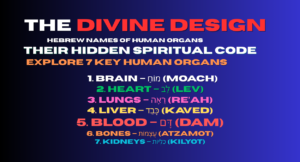Hidden Meanings in Bible Parables | Unveiling the Secrets of Parables
Why did Jesus speak in parables? Were they moral stories, or did they contain deeper truths meant to be uncovered? Many people assume that parables are just easy-to-understand tales meant for teaching simple lessons. However, Jesus Himself explained that parables were designed to reveal divine mysteries to those who sought truth while remaining hidden from those who were not ready to receive it (Matthew 13:1017).
Parables are more than stories—they are allegories rich in spiritual wisdom, layered with meaning, and often pointing to profound truths about God’s kingdom, human nature, and salvation. To fully grasp their significance, we must go beyond the surface and seek to understand their hidden messages.

Delving Deeper: The Power of Hidden Meaning
Parables are a form of allegory, where characters, objects, and events represent deeper truths. While some parables may seem straightforward, many are misinterpreted because people fail to recognise their symbolic nature and historical context.
For example, consider the Parable of the Mustard Seed (Matthew 13:3132). Many interpret it as simply teaching that God’s kingdom starts small and grows large. However, a closer look reveals something deeper. Mustard plants, in biblical times, were wild and invasive—they weren’t something a farmer would intentionally plant in a garden. This suggests that the Kingdom of God will grow unexpectedly, even in ways that seem unconventional or disruptive to the world’s system.
Another misunderstood parable is the Parable of the Ten Virgins (Matthew 25:113). On the surface, it seems like a lesson about preparedness. However, it carries an urgent message about the return of Christ and the importance of spiritual readiness. The “oil” represents the Holy Spirit and a life of faithfulness, while the “closed door” signifies the finality of judgment for those unprepared for Jesus’ second coming.
The key to unlocking these hidden meanings is understanding historical and cultural contexts, biblical symbolism, and the audience Jesus was addressing.

Unpacking the Layers: Popular Parables and Their Secrets
One of the most well-known parables is the Parable of the Good Samaritan (Luke 10:2537). It is often taught as a lesson on kindness, but there is much more beneath the surface.
The priest and the Levite represent religious figures who prioritised ritual purity over compassion.
The Samaritan (viewed as an outcast by Jews) represents Christ, who rescues the wounded (sinners) when religious institutions fail them.
The innkeeper represents those who continue Jesus’ mission by caring for the wounded, symbolising the role of the Church.
This parable is not just about helping others—it is a powerful message of God’s grace, showing how Jesus, the rejected one, came to save those in need.
Other parables, like the Parable of the Prodigal Son (Luke 15:1132), reveal God’s unconditional love and forgiveness, while the Parable of the Sower (Matthew 13:123) teaches how different heart conditions affect spiritual growth. Each parable carries layers of truth that apply to both the time of Jesus and modern believers.

Practical Application: The Power of Parables in Our Lives
Parables are not just ancient stories; they are divine lessons for daily life. By understanding their hidden meanings, we can:
Strengthen our faith by recognising God’s truths woven into everyday experiences.
Gain wisdom for handling relationships, money, forgiveness, and personal growth.
Deepen our understanding of salvation and God’s kingdom through the lens of Jesus’ teachings.
Jesus often ended His parables by saying, "Whoever has ears, let them hear" (Matthew 13:9)—a reminder that we must actively engage with Scripture and seek spiritual insight.
Conclusion: Continuing the Journey of Discovery
Biblical parables are rich with hidden wisdom, revealing deep truths about God, His kingdom, and our spiritual journey. By exploring their symbolism, context, and deeper meaning, we unlock powerful lessons that can transform our faith and daily lives.
Are you ready to uncover more hidden meanings in Jesus’ teachings? Start by reflecting on the Parable of the Sower (Matthew 13:123)—what kind of “soil” is your heart? How can you apply its lessons to grow in faith?
Keep exploring, keep seeking, and keep discovering the hidden treasures in God’s Word!
https://divinetruthofnumbers.com/birthday-number-vs-life-path-number/




